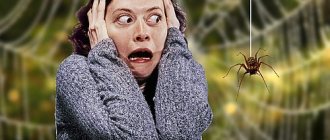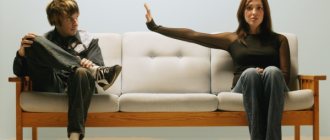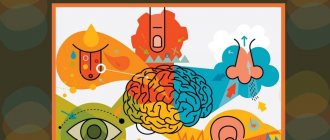Almost every second client who comes to me for a consultation, listing the reasons for coming, talks about anxiety. Sometimes he himself identifies it, sometimes he calls it another word or describes his condition so vividly that it becomes immediately clear what he means. Perhaps, it’s true that anxiety, which absolutely all people face at certain points in their lives, is often one of the main reasons for turning to a psychologist. Specifically, a prolonged state of anxiety or an increased level of anxiety. What this condition threatens and how you can work with it will be discussed in this article.
Social
Imagine a situation: a young man introduces a girl to his friends. She is excited: her palms are sweaty, her knees are shaking. It seems to her that she is dressed ugly and cannot carry on a conversation. She is sure that his friends are whispering and discussing her in a bad light.
But here’s another situation: a man has to give a presentation to an audience of 150 people. And then, as luck would have it, my throat became dry and my speech became slurred. He is convinced that his report is no good, he will be humiliated and disgraced. Is this a familiar picture?
In psychology, these conditions are referred to as social anxiety. People with this syndrome are not confident in themselves and depend on other people's opinions. There are a number of symptoms that define social phobia:
- Shyness and excessive worry over trifles.
- Excitement before an important event long before it begins.
- Pathological fear that every action is evaluated and condemned.
- Fear of humiliation.
- Criticism and analysis of your behavior after a conversation or unpleasant situation.
- Avoidance of events: parties, going to the theater, restaurant.
Physical symptoms of social anxiety:
- the face is filled with paint;
- breathing quickens;
- nausea sets in;
- tremor of the limbs;
- the heart beats faster;
- palms sweat;
- dizzy;
- weakness throughout the body.
Symptoms of anxiety cause you to experience mental and physical discomfort. Social anxiety can develop into social phobia. To do this, it is enough to endure an emotional shock - worry about the death of a loved one, bankruptcy or a fire. The diagnosis of “social phobia” is an acute mental condition when a person closes himself off from society and does not have contact with people.
Situational
Marina saved for an apartment for many years. And now the treasured amount has been collected. Overwhelmed with happiness, the girl called the first real estate agency she came across. At the meeting, I gave the realtor a large sum for finding an apartment, after which he stopped contacting me.
Are you ready to stop thinking about your problem and finally move on to real actions that will help you get rid of your problems once and for all? Then perhaps you will be interested in this article .
What happened next to the girl is called situational anxiety in psychiatry. Certain problems affect people and cause anxiety. This is considered a normal reaction of the body.
But let's return to Marina. After some time, the realtor showed up and apologized for a long time for the situation. The problem was solved, but the girl’s anxiety did not disappear, but intensified. In this case, there is a concept - general anxiety syndrome. This is an unreasonable fear that is not associated with a specific situation or object. At this time, the patient experiences the following symptoms:
- nervous excitement;
- guilt;
- anxiety;
- tension of all muscles;
- paleness or redness of the face;
- stupor;
- feeling of helplessness;
- fatigue during the day and insomnia at night;
- nausea, diarrhea;
- attacks of anger.
Staying in this state for a long time causes neurosis, depression, and mental disorder.
What is anxiety
Anxiety in psychological science is an emotional state that has a negative connotation. A person in a state of anxiety tends to expect something bad, for example, an unfavorable outcome of events or negative consequences. Anxiety is often confused with fear, but there is one clear difference between them: fear always has an object and is of a specific nature (for example, fear of spiders or heights), and anxiety is always pointless, often its nature is not clear even to the person himself, it always has vague causes .
Anxiety in psychology is a person’s ability to experience a state of anxiety associated with the occurrence of experiences in various situations. Every person has a certain, so-called normal level of anxiety, which is temporary and which a person can easily cope with if desired. However, if the state of anxiety is long-lasting, a person cannot cope with it on his own, and it has a disorganizing effect on life, then they speak of a state of increased anxiety. An increased level of anxiety accompanies the occurrence of various diseases and a significant decrease in the quality of life.
Neurotic
The same Marina was never able to return to normal. The severe stress that she had to endure caused her situational anxiety to intensify and become neurotic. New symptoms appear:
- panic attacks for 20 minutes;
- disorientation in time and space;
- acute reaction to bright lights and loud sounds;
- sudden change of mood;
- migraine and dizziness.
Neurotic anxiety is characteristic of those who, in childhood, were unable to build interpersonal relationships with people around them and did not identify the object of the conflict. That is why a distinctive feature of anxiety neurosis is the absence of a subject of experience.
Why does anxiety occur?
Anxiety is influenced by a wide range of different causes. Most psychologists and neuroscientists agree that a combination of factors often plays a decisive role here, namely the combination of the innate characteristics of the functioning of the human nervous system with the influence of social and psychological factors. Here are just a few of the reasons that lead to an increase in a person’s anxiety level:
- heredity, characteristics (weakness) of the nervous system;
- improper upbringing, dysfunctional family environment surrounding a person in childhood;
- negative life experiences, numerous stresses, consequences of psychological and physical trauma;
- somatic diseases that manifest themselves in humans for a long time;
- chronic fatigue;
- low self-esteem;
- various problems and conflict situations in interpersonal relationships;
- insufficient amount (or complete absence) of physical activity and proper rest;
- abuse of alcoholic beverages, etc.
It is important to understand that if the reasons that caused increased anxiety are not related to the presence of a mental illness in a person, then it is advisable to consult a psychologist with this problem!
Personal
Internal trauma and experienced stress provoke the phenomenon of personal anxiety. The difference with situational anxiety is that such anxiety has no reason or circumstances for worry. A person is haunted by obsessive thoughts associated with his own worthlessness, lack of confidence in his strengths and capabilities. Such anxiety can be congenital or acquired, take root, or become a character trait.
More than 9,000 people have gotten rid of their psychological problems using this technique.
For clarity, imagine a student facing an important exam. He knows the material from A to Z, because before that he spent several days studying textbooks. But he is indecisive and is convinced that he will fail the change.
The peak of panic occurs when the student pulls the ticket. In this case, a high or medium level of anxiety is observed, and symptoms similar to situational anxiety are present.
Types of anxiety
Depending on the reasons influencing its development, it happens:
Personality anxiety
This is anxiety that is not interconnected with the surrounding stop and current events. With excessively expressed personal anxiety, the surrounding world is perceived as threatening and dangerous.
Situational or reactive anxiety
Anxiety, which is a reaction to some event or situation in a person’s life. For example, it is considered completely normal to be slightly anxious before an exam at college or a job interview. These experiences are common to all people. They have a mobilizing function, stimulating preparation for an upcoming event, thus reducing the risk of failure.
Depending on the area of occurrence, anxiety can be:
- Educational – arising in the learning process;
- Interpersonal – caused by conflicts and difficulties in communication;
- Social – appears due to the understanding of the need to interact with people around us: the process of acquaintance, direct communication, etc.;
- Anxiety caused by self-image – inflated claims (expectations) and low self-esteem, discrepancy between “I want” and “I can”;
- Anxiety caused by a choice situation is unpleasant feelings that arise during the decision-making process and are associated with the need to make a choice .
By impact on human volitional processes:
- Mobilizing anxiety - encourages a person to take actions that reduce the adverse consequences of the situation and the risk of failure by activating thinking, volitional processes and increasing physical activity.
- Inhibitory anxiety paralyzes a person’s will, complicates decision-making, inhibits thought processes and the implementation of active actions that could help get out of difficult situations.
According to the degree of adequacy of the situation:
- Adequate anxiety is a natural reaction to real-life difficulties and problems in various areas of life (family, work team, educational activities).
- Inappropriate anxiety - occurs in situations that are not potentially dangerous, but a person views them as posing a threat to his life, health, self-esteem, etc.
By severity:
- Reduced anxiety – characterized by the fact that a person does not tend to experience feelings of anxiety even in life-threatening situations. As a result, a person cannot adequately assess the degree of threat, is too calm, and does not anticipate the possibility of difficulties and the presence of risks.
- Optimal anxiety - has a moderate expression, does not interfere with the performance of functions, but rather mobilizes the body, improving mental activity and volitional abilities of a person. Also performs a protective and safety function in dangerous situations.
- Increased anxiety interferes with the normal functioning and life of a person, because it is an inadequate reaction to situations that do not carry threats or negative consequences.
Existential
Psychotic anxiety is a serious mental illness. These are attacks of horror when a person falls into despair. The course of such attacks cannot be ignored:
- inappropriate behavior;
- panic attack;
- disorientation;
- suffocation;
- increased heart rate.
Such increased emotionality is a consequence of prolonged existential anxiety. It is expressed as an internal conflict: on the one hand, the fear of inevitable death, on the other, the meaninglessness of existence. Another sign of existential anxiety is a feeling of helplessness and injustice. The danger of this condition is in somatic diseases. That is, psychological manifestations of anxiety lead to physical illness.
More than 9,000 people have gotten rid of their psychological problems using this technique.
Existential anxiety provokes paroxysmal behavior: a person lives in constant tension and anticipation of the next attack, thereby provoking psychosis.
Why does increased anxiety occur?
The initial cause of increased anxiety is distrust of the world, the habit of living in anticipation of a catastrophe and the subconscious confidence that danger lurks at every step.
How does this worldview arise? A common case is that a child sees a parent’s anxiety every day and adopts their behavior model. Parents worry about every little thing, dramatize and build up fear even in unimportant situations. The child automatically remembers how mom, dad, and other relatives behave. Increased anxiety is passed down from generation to generation - from fathers and grandfathers to children and grandchildren.
Increased anxiety often stems from childhood.
Sometimes parents consciously raise their child to be anxious and cautious. If a child perceives the world as dangerous and unpredictable, he is less likely to get into an unpleasant situation. He will not go with a stranger, will not go to the other end of the city to “explore the area”, will not want to be in bad company, and simply will not leave the yard without permission. While the child is small, this approach to parenting seems effective. However, the older the child gets, the more this caution (anxiety) causes him problems.
Adult life inevitably contains a share of risk - when you need to make an important decision, take responsibility for the consequences of your choices and actions. If, due to increased anxiety, a person does not even take reasonable, calculated risks, he misses opportunities. He is afraid to take the first step in a relationship, to choose a specialty he likes, to change his job to a more promising and well-paid one, to move away from relatives, or to decide to move to another city or country.
Important
If, due to increased anxiety, a person does not even take reasonable, calculated risks, he misses opportunities.
Another factor that can lead to the development of increased anxiety is an unfavorable environment in the family, in the classroom, or in a peer group. Drinking parents, difficult divorces with clarification of relationships, protracted conflicts between people in the same apartment (for example, mother and paternal grandmother), persecution in the classroom or in a courtyard company - all this creates an atmosphere of psychological distress. The child expects bad things all the time and gets used to living in constant fear of the future.
Adaptive
Each of us has experienced a feeling of anxiety at least once in our lives. Sometimes it helps to draw attention to a threat and forces you to take action. There is such a type of anxiety as adaptive. It provokes reactions to various negative circumstances. Causes of adaptive anxiety:
- unknown;
- feeling of danger;
- doubts.
This condition is considered normal until it becomes permanent.
Psychology studies have shown that women suffer from nervousness and anxiety disorders twice as often as men.
Psychological theories and schools
Anxiety in psychology was studied on the theoretical and methodological basis of research on domestic and foreign psychological theories and concepts by T.Yu. Artyukhova, F.E. Vasilyuk, V.K. Vilyunas, A. M. Prikhozhan, Ch. Spielberger.
Their contribution to the development of the concept of anxiety in psychology was the construction of compensatory strategies, later called the neurotic needs of the individual.
The most famous among them are the need for affection, the ability to struggle and loneliness. It is these postulates that are necessary for the formation of a healthy psyche in order to avoid the development of feelings of inferiority and anxiety.
Later theories were presented by V.S. Mukhina, I.Yu. Kulagina, E. Erickson in the study of levels and indicators of anxiety. And T.V. took part in materials on personality development. Anokhina, E.V. Bondarevskaya, G.K. Selevko, who made it possible to correct the level of anxiety through academic discipline.
When studying the problem of anxiety in adolescence, it is necessary to consider the teachings of A.I. Zakharov, who described the concept of anxiety as an indefinite feeling of uneasiness, which has its own motives for anticipating trouble.
The psychologist identified a common component in the feelings of fear and anxiety - the perception of a threat and the lack of a minimum level of security. As a result, anxiety is a danger signal, and fear is a response to a pathogen.
In turn, A.I. Zakharov divided the concepts of anxiety and fear into two independent locations, arguing that anxiety is considered a social norm, and fear arises at the level of instincts. Subsequent work by V.A. Labunskaya, K. Rudestam, D.I. Donskoy was allowed to select techniques for designing cognitive training to eliminate students’ anxiety.
Various aspects of anxiety were considered by foreign scientists S., Freud, J. Taylor, HS Sullivan, H. Eysenck, R. May, Ch. Spielberger, I. Sarazon and others. Their contribution to domestic psychology is to consider the feeling of anxiety among schoolchildren from 6 to 18 years old.
According to Dr. Sullivan, a person’s personal characteristics reflect a lowering of the threshold of sensitivity to various stressful situations. Anxiety is a threat to the manifestation of the “I” both physically and emotionally, and therefore is the main reason for the development of normal adaptation of a schoolchild in society.
Generalized anxiety disorder (GAD)
Globally, 8% of people suffer from generalized anxiety disorder. Causes of anxiety:
- financial distress;
- daily routine;
- family problems;
- health concerns.
A person with this diagnosis constantly worries about any reason for 6 or more months. Often the disease becomes chronic and difficult to cure. Symptoms of GAD:
- restless sleep;
- numbness of the limbs or cramps;
- disruption of the gastrointestinal tract;
- fear of madness;
- fainting;
- general weakness;
- chest pain;
- feeling of a lump in the throat;
- irritability and unconscious anger;
- loss of concentration.
Uncontrolled anxiety prevails over a calm state. GAD makes a person's life debilitating: there is no opportunity to work, study, relax, or even eat. The patient is unable to relieve excessive anxiety on his own.
How to get rid of anxiety
Treating anxiety on your own is a process that requires a lot of effort. It is important to identify the cause of the disease, eliminate it, determine the level of fear and type of anxiety. The main condition for self-medication is the ability to relax. Breathing techniques and confidential communication with loved ones will help.
Detailed article about methods of dealing with anxiety →
In cases where the condition is accompanied by panic or paroxysmal attacks, you should consult a doctor. During psychotherapy sessions, the doctor will conduct a diagnosis and tell you how to get rid of anxiety. If necessary, prescribe a course of drug therapy.
If you don’t want to give up and are ready to really, and not in words, fight for your full and happy life, you may be interested in this article .











